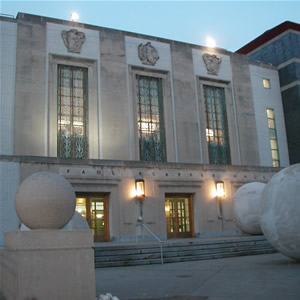
Responding to Michael Happy’s previous post:
One wonders how Bloom and Frye would react to being positioned together as “whipping boys.” The Frye-Bloom axis, as Eleanor Cook calls it, seems to be a continuous concern for those “in theory,” insofar as there seems to be a perpetual need to rebel against them both as though they are pushing the same agenda. Of course, this is, as any reader of Frye and Bloom knows, not true. Frye rebels against Bloom and Bloom rebels against Frye — Bloom’s writing since Frye’s death seems to be one long battle with Frye: The Western Canon is Bloom’s defence of value judgments; The American Religion (1992, reprinted in 2006), Jesus and Yahweh (2005), and, to a lesser degree, Omens of the Millennium: The Gnosis of Angels, Dreams, and Resurrection (1996), read as though they are responses to Frye’s Bible books; and then, of course, there is Bloom’s forthcoming book The Living Labyrinth: Literature and Influence (2010) which originally boasted the title: Anatomy of Influence. All of these books seem to try to position Bloom outside the shadow of Frye and yet Frye always seems to lurk in the background — perhaps, one can read Bloom’s book on Hamlet as something of meditation of the theoretical self (or as an autobiography, like The Anxiety of Influence). Of course, it would seem that Frye rebelled against Bloom as well, especially in the later years when Frye turned to the biblical texts. Despite the concerted efforts by both Bloom and Frye to distance themselves from each other, the reality is that these two literary giants are almost always seen in relation to one another — at least in terms of the history of literary criticism.

